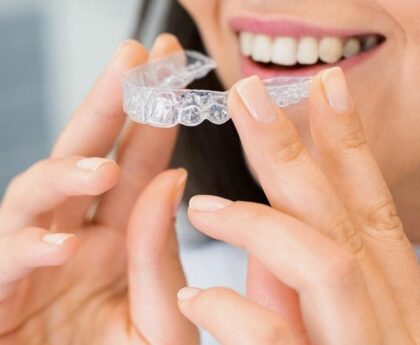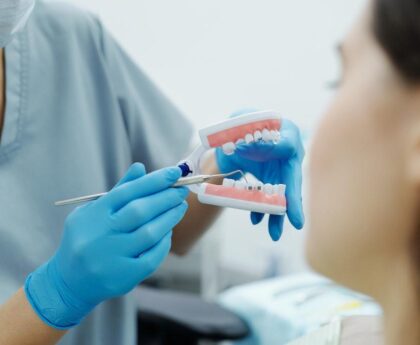A dental hygienist Richmond will play a crucial and multifaceted role in maintaining and promoting optimal oral health. With their specialised training and expertise, they provide essential preventive care, perform thorough dental cleanings, conduct assessments, and educate patients on proper oral hygiene practices. In this comprehensive guide, we delve deeper into the responsibilities and contributions of dental professionals to overall oral health.
1. Performing thorough dental cleanings and assessments
One of the primary responsibilities of dental hygienists is to perform comprehensive dental cleanings, known as prophylaxis. During these cleanings, hygienists meticulously remove plaque, tartar, and surface stains from the teeth, leaving them clean and polished. They utilise specialised instruments, including ultrasonic scalers and hand scalers, to clean each tooth surface thoroughly, including hard-to-reach areas. By eliminating plaque and tartar buildup, hygienists help prevent gum disease, tooth decay, and other oral health issues.
In addition to dental cleanings, dental hygienists conduct thorough assessments of the overall oral health of patients. They examine the gums, teeth, and surrounding tissues for signs of inflammation, infection, or abnormalities. These assessments serve as a critical diagnostic tool, enabling early detection of oral health problems and facilitating prompt intervention.
2. Providing oral health education and counselling
Education is a cornerstone of a dental hygienist’s role. They play a vital role in educating patients on proper oral hygiene practices, emphasising the importance of consistent and effective oral care routines. Dental hygienists offer personalised recommendations based on individual patient needs and address specific concerns related to oral health.
Through effective communication, dental hygienists empower patients to take control of their oral health. They guide proper brushing techniques, flossing methods, and the use of adjunctive oral hygiene aids such as interdental brushes or mouthwash. Hygienists also educate patients on the significance of regular dental visits for preventive care and early detection of dental problems. By equipping patients with knowledge and practical tips, hygienists promote long-term oral health and encourage the prevention of dental issues.
3. Conducting periodontal assessments and non-surgical treatments
Dental hygienists are extensively trained to assess and manage various stages of gum disease, known as periodontal disease. Using specialised instruments, hygienists can measure gum pocket depths and evaluate the overall gum health. Based on their findings, hygienists develop individualised treatment plans to address gum disease and prevent its progression.
Non-surgical treatments, such as scaling and root planing, are often performed by dental hygienists to remove plaque and calculus from below the gumline. These treatments aim to reduce inflammation, promote healing, and prevent further damage to the gums and supporting structures. By assisting in the management of gum disease, hygienists contribute significantly to maintaining overall oral health.
4. Administering local anaesthesia and applying topical agents
In certain dental procedures, dental hygienists may assist in administering local anaesthesia to ensure patient comfort during treatments. With proper training and certification, hygienists can safely administer local anaesthesia under the supervision of a dentist; this allows for comfortable experiences and facilitates more comprehensive dental care.
Additionally, dental hygienists apply topical agents such as fluoride treatments or dental sealants to protect teeth from decay. These applications help strengthen enamel, remineralise tooth surfaces, and provide an added layer of protection against cavities. By offering preventive treatments, hygienists actively contribute to maintaining optimal oral health.
5. Supporting oral health research and dental team collaboration
Dental hygienists play a vital role in supporting oral health research and promoting evidence-based practices. They stay updated with the latest advancements in dental care, attending continuing education courses and conferences to enhance their knowledge and skills. By staying abreast of emerging research and trends, hygienists contribute to the improvement of patient care and outcomes.
Moreover, dental hygienists actively collaborate with other members of the dental team, including dentists, dental assistants, and administrative staff, to ensure comprehensive and coordinated care. They contribute their expertise and insights during treatment planning and collaborate closely with dentists to develop individualised care plans for patients. This collaborative approach enhances the overall patient experience and fosters a multidisciplinary approach to oral health.
Conclusion: dental hygienists as champions of oral health
Dental hygienists are invaluable champions of oral health, playing a pivotal role in maintaining and promoting optimal oral well-being. Through their expertise in dental cleanings, assessments, education, non-surgical treatments, and collaborative teamwork, hygienists contribute significantly to improving patient outcomes and overall oral health. Their dedication to preventive care, patient education, and continuous professional development ensures that individuals receive the highest quality oral care. The critical contributions of a dental hygienist in Richmond underscore their importance within the dental field and highlight their integral role in safeguarding oral health for patients of all ages.





